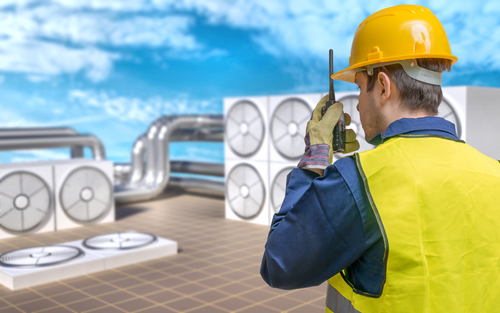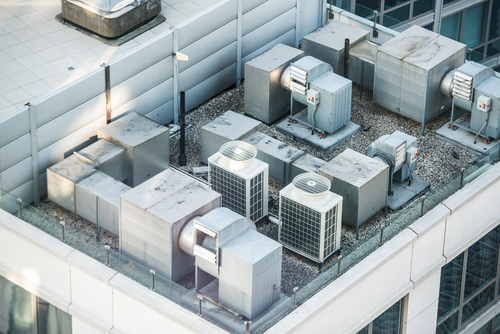As a business owner, there are many things you need to learn about how to handle day-to-day building functions properly. Heating and cooling the building is one of these factors. As such, you should have an idea on how HVAC rooftop units work, especially if you are managing or if you own an entire building. You don’t have to be as knowledgeable about these units as commercial HVAC contractors, but it wouldn’t hurt to learn a thing or two about commercial HVAC rooftop units.
These units are one of the most commonly used HVAC systems for businesses. Adaptable to many applications, cost-effective, and pre-engineered, they work to keep your building warm in the winter and cool in the summer – ensuring the comfort of your building occupants.
If you are looking to buy a brand new unit or are in need to replace an old one, there are some factors you need to consider. In today’s post, we’ll look through these and provide you with helpful tips.
What Are HVAC Rooftop Units?
As the name applies, these are HVAC units placed on the rooftop of a commercial establishment. Compared to their residential counterpart, commercial rooftop HVAC units are packaged, which means that all the parts and components – including the fan, evaporator coil condenser, and compressor – of the unit are assembled and secured in one compact cabinet. Residential HVAC units are split systems; their components are often separated from each other. Other types of air conditioners have indoor and outdoor parts.

Commercial HVAC contractors can configure rooftop HVAC units as either a heat pump that can be used for heating and cooling or as air conditioners. A humidistat, which is a device to control humidity, can be installed on a rooftop unit, enabling the unit to ventilate fresh air into it, enhancing the quality of indoor air. Split system units, on the other hand, are not capable of this feature.
Benefits of HVAC Rooftop Units
Installing HVAC rooftop units for your commercial establishment can be beneficial to your premises. Business owners and property managers employ the services of commercial HVAC contractors to install these units to mainly save on space. The other benefits of rooftop HVAC unit include:
- Less noise inside the building to distract or disrupt the normal, daily activities of the building occupants
- The HVAC unit is secured up on the rooftop
- Reduced accumulation of human interference
- More straightforward maintenance procedures since all the components are housed in one place
- Better energy efficiency
What Factors Should I Keep in Mind When Getting a Commercial HVAC Rooftop Unit?
Choosing a residential HVAC unit, while necessary, is quite straightforward. However, when it comes to commercial HVAC, especially a rooftop unit, there are some key factors you need to consider.
- Type of the unit – You can choose either electric or gas units
- Energy efficiency capabilities of the unit
- The lifespan of the unit – Majority of commercial HVAC systems are designed to last from 10 to 20 years. However, certain factors take place that are beyond the control of the manufacturer or commercial HVAC contractors. These factors dictate the cost-effectiveness and reliability of the unit throughout its life. Thus, it’s essential to have a commercial HVAC professional to carefully scrutinize the overall status of the unit and whether it needs to be replaced or not.
- Other factors – These factors involve the location of your site, the weather/seasonal changes, the capacity of the building, etc.
Should I Repair or Replace My Commercial HVAC Unit?

In order to make this decision, it would be helpful to you, as a business owner or property manager, to look at your current operating expenditures. It would also be beneficial to study the projected repair expenses. Compare these figures to how much it would cost to purchase and maintain a new unit. Looking at these figures can help you determine whether you need to repair or replace your commercial HVAC equipment.
Additionally, employ the aid of commercial HVAC contractors for professional advice. However, don’t take the word of one company as gospel. Get as many suggestions as possible from local HVAC companies and weigh your options from there.
Maximum Comfort, Efficient Performance
As a commercial building owner, it’s your responsibility to ensure maximum comfort and safety of your employees, guests, and tenants. Whether it’s a call center building, an educational facility, a luxury law firm, or a data-heavy IT firm, a carefully planned, installed, and adaptable HVAC unit is essential.

